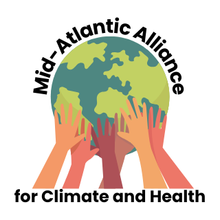

The Healthcare Industry Called Upon to be Climate Leaders
In 2021, the Office of Climate Change and Health Equity (OCCHE) was established under Health and Human Services to address climate change’s impact on health. Healthcare providers have been designated as leaders in addressing and tackling the climate crisis for several reasons. Primarily, climate change has been identified as one of the greatest public health and equity crises facing humanity today.
Furthermore, the healthcare industry significantly contributes to climate change through its care delivery methods, particularly due to unique infection prevention requirements. Ironically, this contribution to climate change adversely affects the very health it aims to protect. We need everyone’s help to save our planet, and while people may no longer trust politicians to communicate the climate message, health professionals have a unique opportunity to be trusted voices supporting global efforts to reduce emissions and protect people from the threat of climate change.
Health professionals must all step up and communicate that climate change is happening now. By acting swiftly and collectively, we can ensure a livable, stable planet for all.
Health Professionals are Trusted Messengers to Deliver the Essential Climate Message

In addition to the United States’ polarized political system, there is a lot of conflicting information in the media regarding climate change, stemming from science disinformation campaigns. When people are confused, they seek trustworthy sources for correct information. According to Gallup polls, health professionals are among the most trusted. Therefore, health professionals need to be the ones communicating to the public, healthcare leaders, and policymakers that a prosperous and healthy future still lies within reach. However, to achieve this, we need a concerted, health-centered climate action plan.

Healthcare Leaders as Climate Action Catalysts: Leveraging Economic Influence for Sustainable Change
The healthcare sector’s substantial financial influence, accounting for 17.3% of GDP, positions healthcare leaders as potential catalysts for climate action. This economic leverage enables them to drive sustainable practices across supply chains, influence policy discussions, and advocate for climate-friendly policies. Healthcare leaders can also direct resources towards developing eco-friendly technologies and practices within healthcare settings. As trusted figures in society, they can effectively communicate the health impacts of climate change, influencing public opinion and behavior. By implementing sustainable practices in healthcare facilities, these leaders can significantly reduce the sector’s carbon footprint. Ultimately, by leveraging their economic power, influence, and expertise, healthcare leaders are uniquely positioned to spearhead climate action, potentially catalyzing change across multiple sectors of the economy.1

The United States’ excessive healthcare spending, coupled with subpar health outcomes, offers an opportunity to reduce environmental impact through the elimination of inefficiencies in care delivery.
The United States healthcare system presents a paradox: despite having the highest healthcare expenditure among developed nations, it lags behind in life expectancy.2 This discrepancy highlights a critical inefficiency in the U.S. healthcare system. To put this into perspective, the average healthcare spending per person in comparable countries is approximately $6,651, roughly half of what the U.S. spends. This stark contrast raises important questions about the allocation and effectiveness of healthcare resources in the United States. Moreover, it’s estimated that up to one-fifth of U.S. medical care is deemed low-value. 3 This presents an opportunity to improve care delivery without compromising quality. By implementing cost-effective, high-quality healthcare practices and eliminating low-value care, the U.S. healthcare system could simultaneously reduce expenses and its environmental footprint without compromising the quality of patient care.
